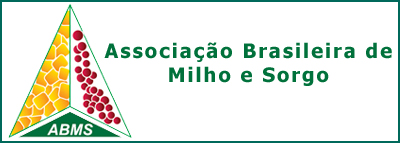MICROBIAL ACTIVITIES IN SOILS CULTIVATED WITH TRANSGENIC MAIZE EXPRESSING Bacillus thuringiensis CRY1AB AND CRY1F GENES
DOI:
https://doi.org/10.18512/1980-6477/rbms.v14n3p409-419Palavras-chave:
milho bt, ecologia microbiana, bioindicadores, qualidade do soloResumo
ABSTRACT - The Brazilian acreage planted with genetically modified (GM) maize expressing Cry genes derived from the soil bacterium Bacillus thuringiensis (Bt) has increased from 4.9% (5.0 million hectares) of total area planted in 2009 to 81.4 % (15.83 million hectares) in 2014. However, studies on the effects of Bt-maize technology on non-target microorganisms in tropical soils are incipient. Thus, a field experiment was performed to assess the physiological activity of bacterial communities associated with Bt-maize genotypes planted in tropical Dark Red Latosol of Cerrado and lowland hydromorphic soil with localized flooding. A non-transgenic hybrid (30F35) and its transgenic counterparts 30F35Y (Cry1Ab) and 30F35H (Cry1F) were planted in a randomized block design with four replicates. Rhizosphere and non-rhizosphere soils collected from plants in the flowering stage were assayed for metabolic diversity with Biolog and enzyme activities of urease, arginase, acid phosphatase and alkaline phosphatase. Rhizosphere soil showed higher microbial activity and no significant differences were detected among genotypes in all the biochemical soil parameters evaluated. The results suggested that Bt-maize does not negatively impact the microbial community of tropical soils.
Keywords: Bt-maize, functional diversity, bio-indicators, soil quality, non-target organisms.
ATIVIDADE MICROBIANA EM SOLOS CULTIVADOS COM MILHO TRANSGÊNICO EXPRESSANDO OS GENES Bacillus thuringiensis CRY1AB E CRY1F
RESUMO - A área brasileira plantada com milho geneticamente modificado (GM) expressando genes Cry derivados da bactéria do solo Bacillus thuringiensis (Bt) aumentou de 4,9% (5,0 milhões de hectares) da área total plantada em 2009 para 81,4% (15,83 milhões de hectares) em 2014. No entanto, estudos sobre os efeitos da tecnologia Bt-milho sobre microrganismos não alvo em solos tropicais são incipientes. Dessa forma, foi realizado experimento de campo para avaliar a atividade fisiológica das comunidades bacterianas associadas com genótipos de milho Bt plantados em Latossolo Vermelho Escuro do Cerrado e solos hidromórficos da planície com inundações localizadas. Um híbrido não transgênico (30F35) e seus homólogos transgênicos 30F35Y (Cry1Ab) e 30F35H (Cry1F) foram plantados com delineamento de blocos casualizados com quatro repetições. Solos rizosféricos e não rizosféricos coletados de plantas no estádio de florescimento foram submetidos aos ensaios de diversidade metabólica com Biolog e atividades enzimáticas de urease, arginase, fosfatase ácida e fosfatase alcalina. Solos rizosféricos apresentaram maior atividade microbiana e não foram detectadas diferenças significativas entre os genótipos em todos os parâmetros bioquímicos e de solo avaliados. Os resultados sugerem que o milho Bt não afeta negativamente a comunidade microbiana dos solos tropicais.
Palavras-chave: milho Bt, diversidade funcional, bioindicadores, qualidade do solo, organismos não alvo.
Downloads
Publicado
Como Citar
Edição
Seção
Licença
Autores que publicam nesta revista concordam com os seguintes termos:- Autores mantém os direitos autorais e concedem à revista o direito de primeira publicação, com o trabalho simultaneamente licenciado sob a Creative Commons Attribution License que permitindo o compartilhamento do trabalho com reconhecimento da autoria do trabalho e publicação inicial nesta revista.
- Autores têm autorização para assumir contratos adicionais separadamente, para distribuição não-exclusiva da versão do trabalho publicada nesta revista (ex.: publicar em repositório institucional ou como capítulo de livro), com reconhecimento de autoria e publicação inicial nesta revista.
- Autores têm permissão e são estimulados a publicar e distribuir seu trabalho online (ex.: em repositórios institucionais ou na sua página pessoal) a qualquer ponto antes ou durante o processo editorial, já que isso pode gerar alterações produtivas, bem como aumentar o impacto e a citação do trabalho publicado



